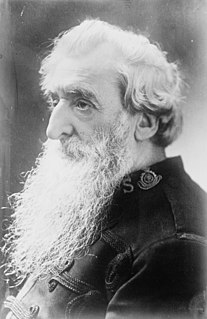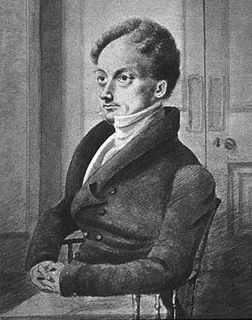A Quote by Alexander Hamilton
The truth is that the general genius of a government is all that can be substantially relied upon for permanent effects. Particular provisions, though not altogether useless, have far less virtue and efficacy than are commonly ascribed to them; and the want of them will never be with men of sound discernment a decisive objection to any plan which exhibits the leading characters of a good government.
Related Quotes
It may be laid down as a general rule, that their confidence in and obedience to a government, will be commonly proportioned to the goodness or badness of its administration . . . . Various reasons have been suggested in the course of these papers, to induce a probability that the general government will be better administered than the particular governments.
Governments, like clocks, go from the motion men give them, and as governments are made and moved by men, so by them they are ruined too. Wherefore governments rather depend upon men, than men upon governments. Let men be good, and the government cannot be bad; if it be ill, they will cure it. But if men be bad, let the government be never so good, they will endeavour to warp and spoil it to their turn.
People hired by government know who is their benefactor. People who lose their jobs or fail to get them because of the government program do not know that that is the source of their problem. The good effects are visible. The bad effects are invisible. The good effects generate votes. The bad effects generate discontent, which is as likely to be directed at private business as at the government.
Is there no virtue among us? If there be not, we are in a wretched situation. No theoretical checks-no form of government can render us secure. To suppose that any form of government will secure liberty or happiness without any virtue in the people, is a chimerical idea, if there be sufficient virtue and intelligence in the community, it will be exercised in the selection of these men. So that we do not depend on their virtue, or put confidence in our rulers, but in the people who are to choose them.
There are men so incorrigibly lazy that no inducement that you can offer will tempt them to work; so eaten up by vice that virtue is abhorrent to them, and so inveterately dishonest that theft is to them a master passion. When a human being has reached that stage, there is only one course that can be rationally pursued. Sorrowfully, but remorselessly, it must be recognized that he has become lunatic, morally demented, incapable of self-government, and that upon him, therefore, must be passed the sentence of permanent seclusion from a world in which he is not fit to be at large.
In all general questions which become the subjects of discussion, there are always some truths mixed with falsehoods. I confess, there is danger where men are capable of holding two offices. Take mankind in general, they are vicious, their passions may be operated upon. We have been taught to reprobate the danger of influence in the British government, without duly reflecting how far it was necessary to support a good government. We have taken up many ideas upon trust, and at last, pleased with our own opinions, establish them as undoubted truths.
I know some say, let us have good laws, and no matter for the men that execute them: but let them consider, that though good laws do well, good men do better: for good laws may want good men, and be abolished or evaded [invaded in Franklin's print] by ill men; but good men will never want good laws, nor suffer ill ones.
The management of foreign relations appears to be the most susceptible of abuse of all the trusts committed to a Government, because they can be concealed or disclosed, or disclosed in such parts and at such times as will best suit particular views; and because the body of the people are less capable of judging, and are more under the influence of prejudices, on that branch of their affairs, than of any other. Perhaps it is a universal truth that the loss of liberty at home is to be charged to provisions against danger, real or pretended, from abroad.
Lastly, our ancestors established their system of government on morality and religious sentiment. Moral habits, they believed, cannot safely be trusted on any other foundation than religious principle, nor any government be secure which is not supported by moral habits.... Whatever makes men good Christians, makes them good citizens.
The good of the governed is the end, and rewards and punishments are the means, of all government. The government of the supreme and all-perfect Mind, over all his intellectual creation, is by proportioning rewards to piety and virtue, and punishments to disobedience and vice. ... The joys of heaven are prepared, and the horrors of hell in a future state, to render the moral government of the universe perfect and complete. Human government is more or less perfect, as it approaches nearer or diverges further from an imitation of this perfect plan of divine and moral government.
I can concede that the government has no knowledge of the people, but I believe the people know less of the government. There are useless officials, evil, if you like, but there are also good ones, and these are not able to accomplish anything because they encounter an inert mass, the population that takes little part in matters that concern them.
Our submission to general principles is necessary because we cannot be guided in our practical action by full knowledge and evaluation of the consequences. So long as men are not omniscient, the only way in which freedom can be given to the individual is by such general rules to delimit the sphere in which the decision is his. There can be no freedom if the government is not limited to particular kinds of action but can use its powers in any ways which serve particular ends.
Whenever the powers of government are placed in any hands other than those of the community, whether those of one man, of a few, or of several, those principles of human nature which imply that government is at all necessary, imply that those persons will make use of them to defeat the very end for which government exists.






























